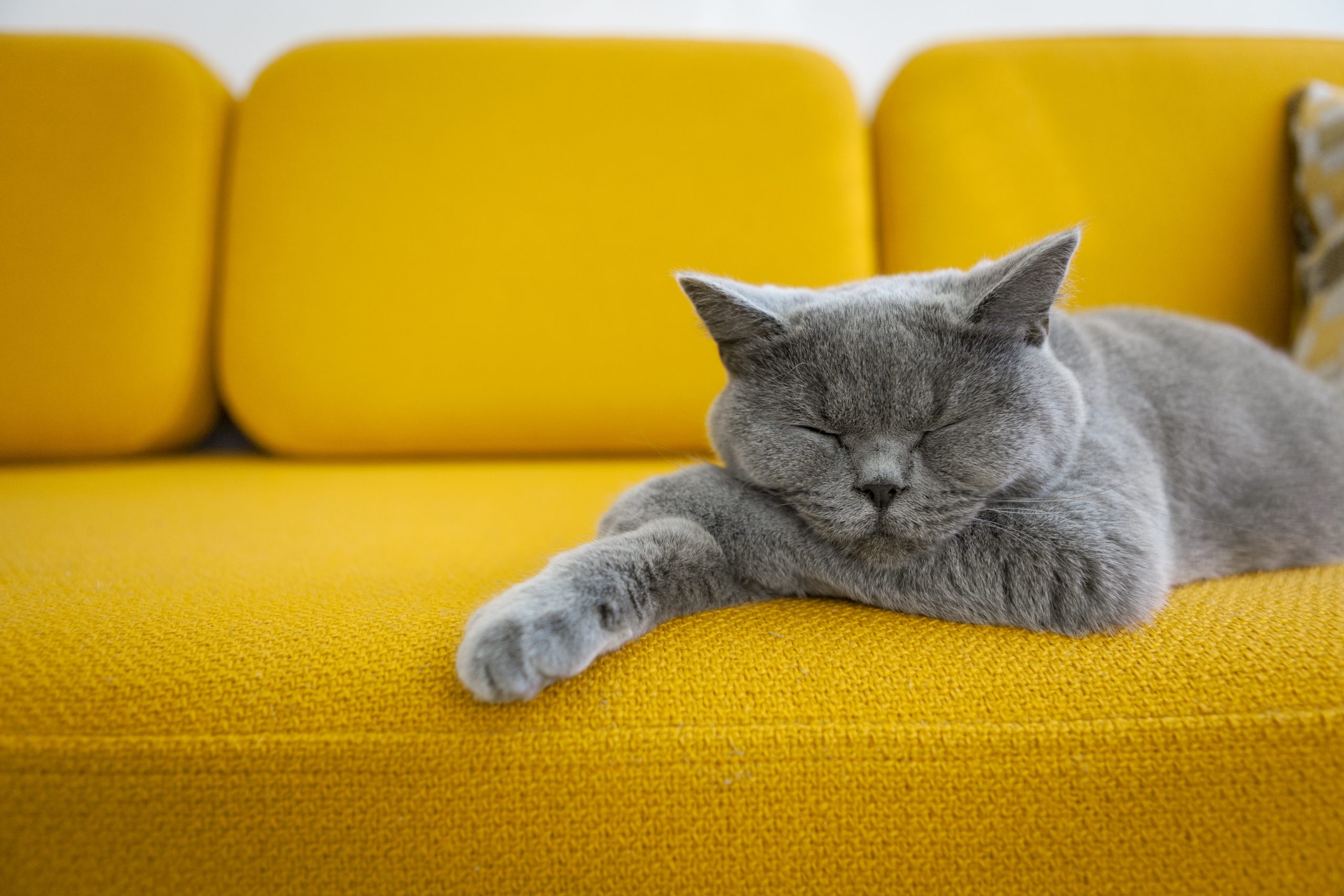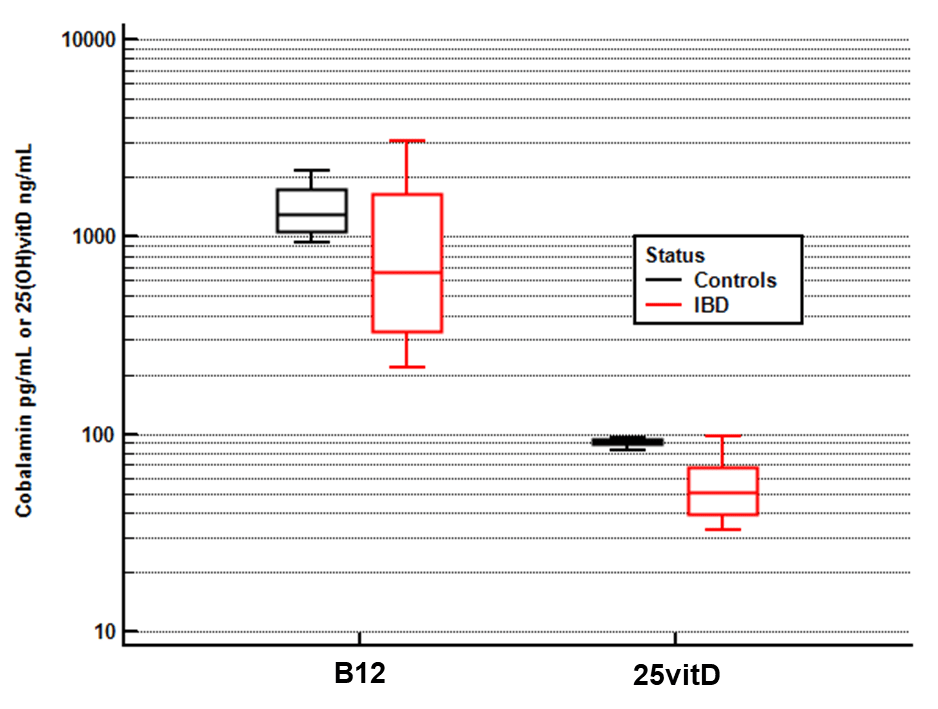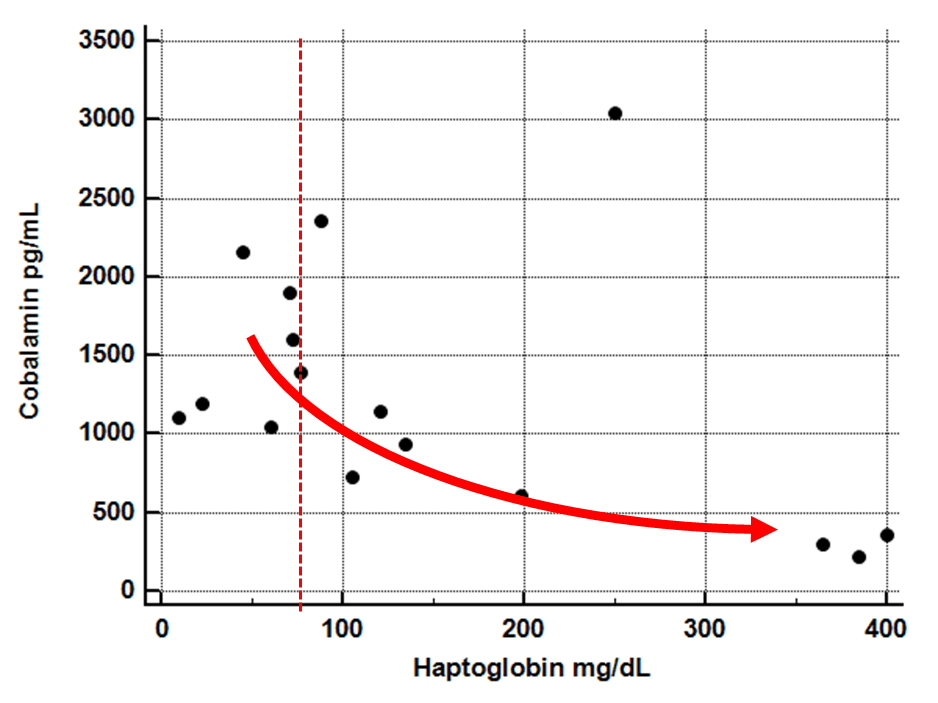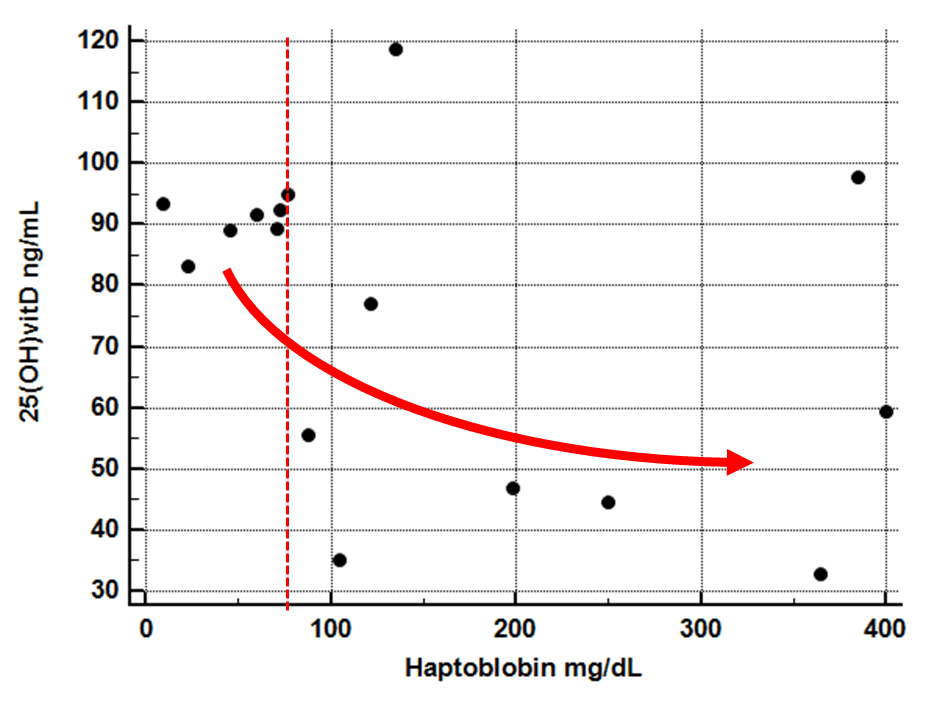
Cobalamin (B12) and 25-hydroxy-vitamin D (25D) are dietary derived in both cats and dogs. Studies have shown 25D insufficiency to be a major problem in both species and worsen with age (1,2). B12 malabsorption is strongly associated with both chronic enteropathies (IBD) and exocrine pancreatic insufficiency (EPI) (3,4). But is there a relationship between the two?
GI Disease

VDI conducted an internal study looking at a group of healthy cats (n=8) and those with chronic IBD (n=8). What we found is that felines with IBD had significantly lower B12 and 25D.
Inflammation

Haptoglobin (HPT) is a general marker of inflammation in cats. In IBD, HPT is elevated due to inflammation of the GI tract.

When evaluating the impact GI inflammation may have on B12 and 25D, what was discovered is as inflammation increases, B12 and 25D decrease. This impact is most significant with B12.
Age
When evaluating the impact age has on B12 and 25D levels, it was discovered that cats over the age of 5 years showed a decreasing level of both B12 and 25D.
VDI recommends screening all cats for B12 and 25D insufficiency with:
- GI disease
- “Apparently healthy” with elevated levels of HPT
- Over 5 years of age
References:
- Selting K (2015) The effect of diet on serum 25-hydroxyvitamin D concentrations in dogs. BMC Res Notes
- VDI internal data
- Volkmann M (2017) Chronic diarrhea in dogs – retrospective study with 136 cases. JVIM
- Xenoulis PG (2016) Feline exocrine pancreatic insufficiency: a retrospective study of 150 cases. JVIM
